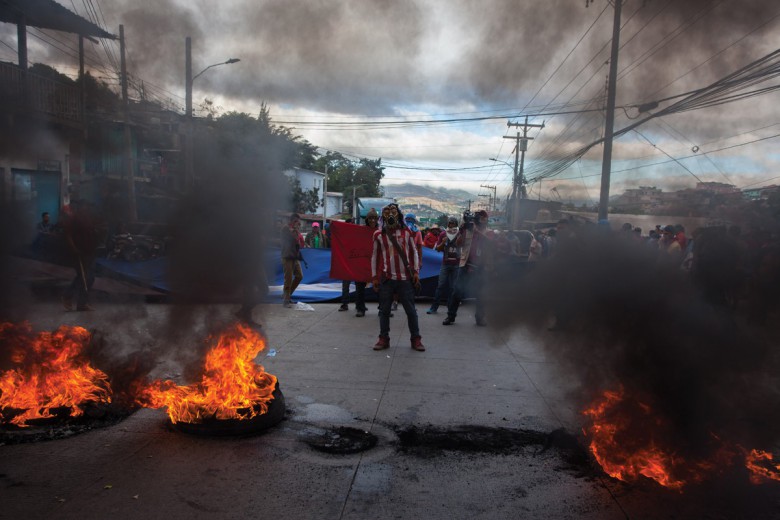1_400_459_90.jpg)
There has been a shift in our social movements of late. After many years of attempting to halt capitalism and reverse the ever-increasing concentration of wealth and power, it feels like we are starting to get somewhere. Whether the past year’s popular mobilizations in the Middle East and the Americas are a result of global injustice and inequality reaching intolerable levels, a new collective consciousness, social media, or some combination of these, these movements are changing the way we organize.
Varied in their origins but united in their broader goals of redistributing power and wealth and asserting grassroots democracy, these mass uprisings and occupations are steering us away from hero-driven, loud but fleeting convergence protests, toward more co-operatively organized, sustained movements. In addition to creating a fissure in the stale crust of the status quo, these movements are demonstrating tangible alternative socio-economic structures as a model for the way forward, as depicted in this issue’s photo essay “Reimagining revolution.”
This is just the type of collective creativity we need to respond effectively to government austerity. In the “Parting Shots” on page 40, Gens Hellquist discusses the fatal impact government cuts have had on queer communities, and queer youth in particular. In response to cuts to social programs of all kinds, community groups have been stepping up to fill the void, serving the people that government refuses to. In this issue’s cover story, Jane Kirby asks what happens when community groups are sidetracked from political organizing in order to fulfill the role of government, and encourages us to respond creatively rather than reactively to fiscal austerity.
Capitalism is founded on the concept of competition. Replete with metaphors of ladders to climb, battles to win and glass ceilings to break, the capitalist system puts individuals at war with one another. When we accept this competition-driven modus operandi, we accept that our success depends on another’s failure; that our freedom can only come through the oppression of others.
Non-hierarchical organization does not mean a lack of leadership; it doesn’t necessarily mean chaos. An absence of hierarchy exists when no single leader or group of leaders dominates at the expense of others. It means all voices are included in decision-making, and that everyone leads in different ways at different times based on what they can offer in a particular context.
But our efforts to organize more co-operatively must go beyond inclusivity. For power to be truly re-distributed, we must pay particular attention to the voices that have been most silenced by global capitalism. We must move beyond a politics of inclusion and toward an active privileging of our most de-privileged communities. Or, as Harsha Walia states in the context of Indigenous sovereignty, “beyond a politics of solidarity toward a practice of decolonization.” Otherwise, we remain complicit in the continued oppression of marginalized communities, even within our movements for social justice.
The Occupy movements have relied heavily on the inclusion and leadership of those who are often ignored in capitalist society – particularly the homeless and under- or unemployed. By opening the space for people to simply offer what they are able to offer, whether that’s food donations, massages, first aid or simply sustained presence, the Occupy movements have allowed people to feel valuable in non-economic terms – as contributing members of a community, rather than as consumers. That this is such a radical departure from the current norm is a disheartening sign of the extent of our disconnection from one another and from the unique voice that each of us has to offer the world.
Only when we include everyone’s voice, particularly those that have been most silenced within capitalism, do we ensure that justice is a collective endeavour.






